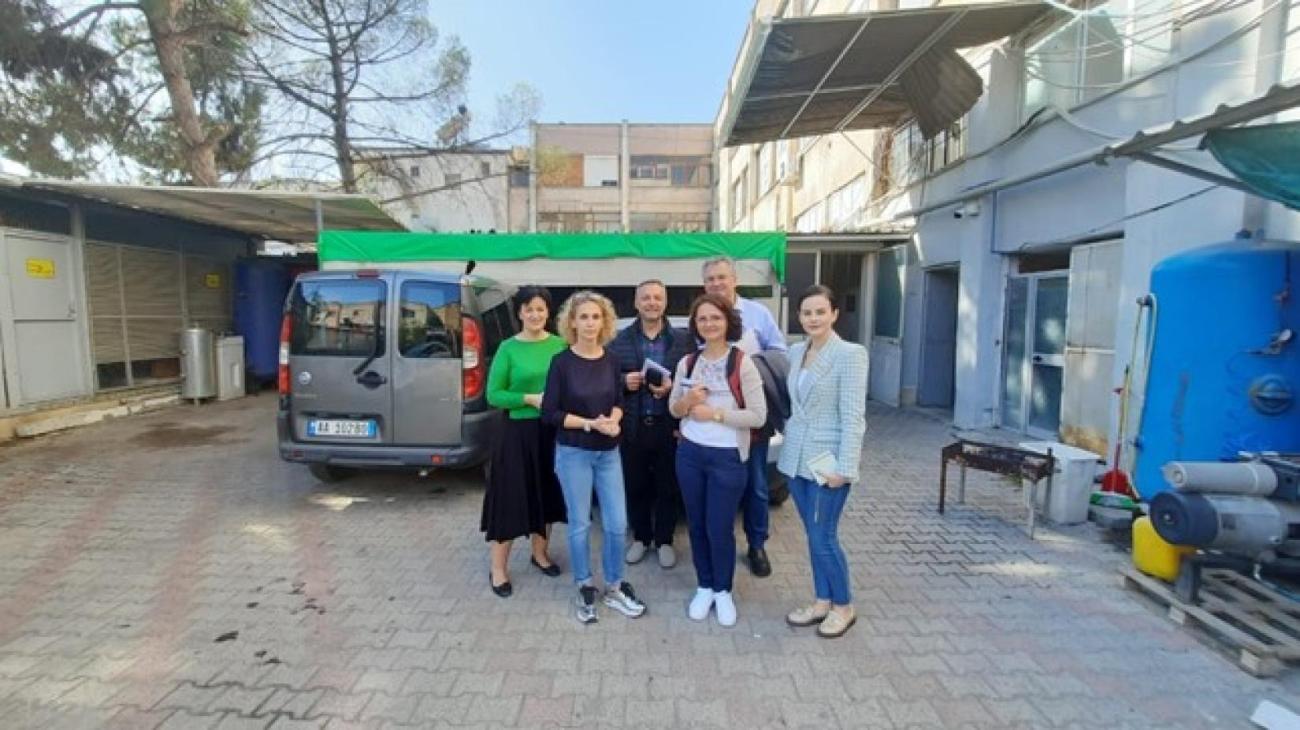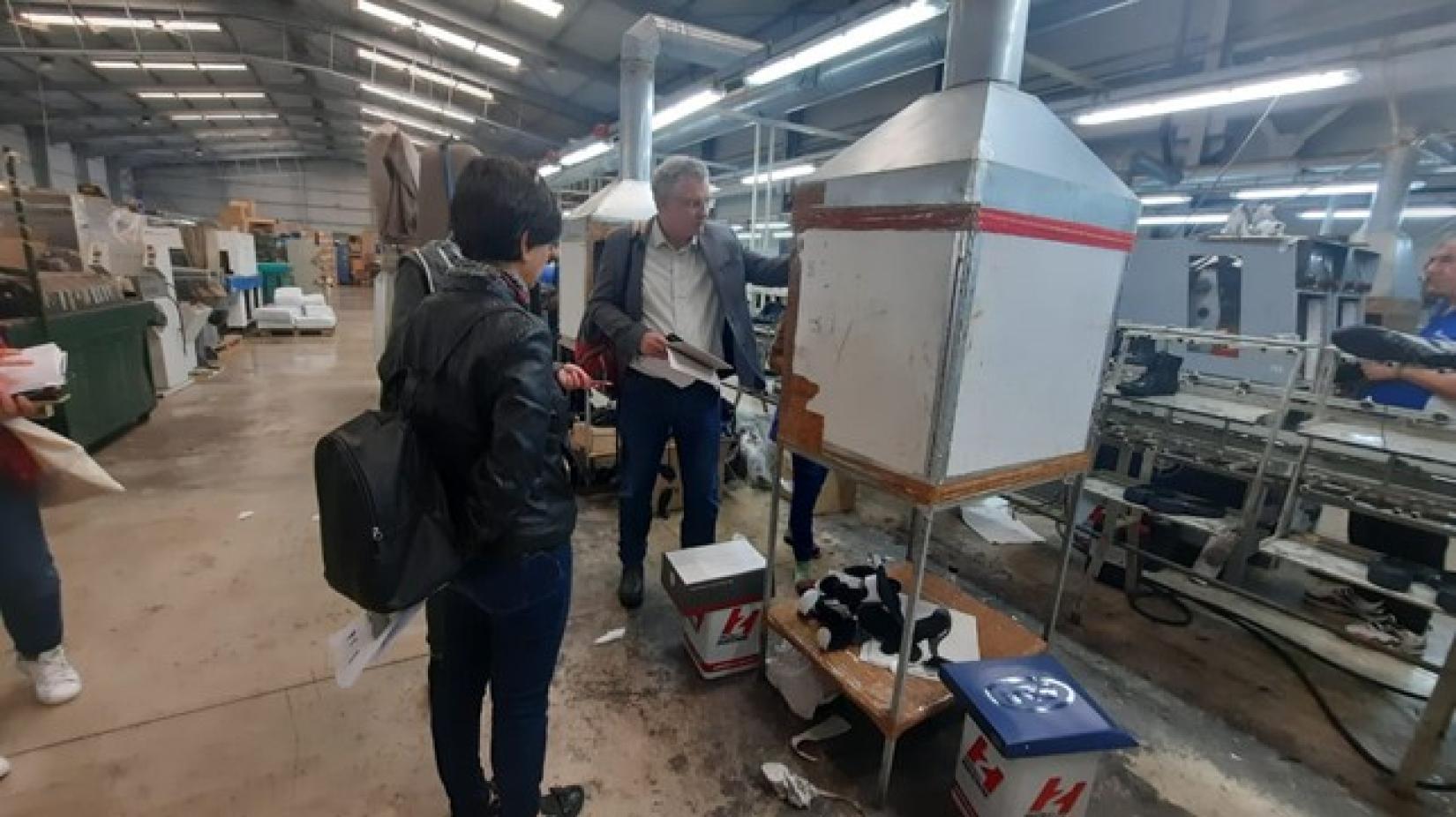UNIDO - Delivering on Sustainable Development Goals with Resource Efficient and Cleaner Production (RECP)

News from UNIDO
The Agenda 2030 with the 17 Sustainable Development Goals (SDGs) was adopted by the United Nations in 2015. The SDGs stimulate action in areas of critical importance for humanity and the planet. For enterprises, they
- Identify new, sustainable business opportunities
- Strengthen stakeholder relationships and prepare for future legal requirements in good time
- Stabilise the position of companies in societies and markets
The European Green Agenda for the Western Balkans (SWD/2020/223) calls for Decarbonisation of energy supply, circular economy to reduce resource use and disposal of waste, reducing pollution of air, water and soil, sustainable food systems and rural areas and measures for the protection and restoration of ecosystems. Concrete mechanisms of implementation are needed.
For the textile, garment, and footwear industry, the SDGs are a call to optimize resource management and impacts, apply best practises with regards to chemical management, water consumption and wastewater management, encourage a shift toward circular business models within the supply chain and deploy tested management approaches in the context of Industry 4.0.
Resource efficient and Cleaner Production is an integrated approach of the United Nations Industrial Development Organization (UNIDO) to transparency of material and energy flows with the goal of increasing the productivity of resources, waste minimisation, chemical management, water optimisation and energy efficiency. To support its implementation in Albania, UNIDO is training experts and representatives of the National Polytechnic University in Tirana simultaneously supporting demonstration assessments of six industries from garment and footwear production. This work is organized under the "Business Partnerships and Solutions for SDGs“ project financed by the Swedish Government.
"SDGs provide a critical window of opportunity to rethink the role of the Albanian textile, clothing, leather and footwear sector as a key factor in the recovery and development processes. The European Green Deal is the EU’s new growth strategy, aiming to transform the EU into a fairer and more prosperous society, with a modern, resource-efficient and competitive economy, with no net emissions of greenhouse gases by mid-century. Both frameworks will enable the private sector in Albania to achieve a significant economic impact while contributing to social and environmental well-being of the country population“ said Ms. Fiona McCluney, UN Resident Coordinator in Albania.
The first results show, that Albanian companies are ready to save energy and are looking for ways to exploit the potential for recycling fabric and leather waste. Companies plan to extend their business model to closer work with the supply chain and deliver complete service packages to their international clients. They are also ready to design their products themselves and to develop own, high quality brands while acknowledging the need for technical training and knowledge acquisition on product design and brand development.

This initiative is the first of a kind project in Albania currently evaluating the potential capacity of the national businesses to use SDGs indicators with support of RECP methodology to transit to circular economy.
"In recent years, the circular economy has gained increasing prominence as a tool which presents solutions to some of the world's most pressing cross-cutting sustainable development challenges. By addressing root causes, the concept of a circular economy, an economy in which waste and pollution do not exist by design, products and materials are kept in use, and natural systems are regenerated provides much promise to accelerate implementation of the 2030 Agenda. The circular economy holds particular promise for achieving multiple SDGs, including SDGs 12 on sustainable consumption and production, and 13 on climate change. The transition from a linear to a circular economy requires a joint effort by stakeholders from all sectors. Companies can contribute to the transition by developing competencies in circular design to implement product reuse, and recycling, and serving as trend-setters of innovative circular economy business models.“ - said Deputy Minister Xhembulla at a validation Round Table for a Zerdo Draft Roadmap in Tirana on 25 October.
This Zero Roadmap is under development as a part of Joint UN Programme supported by Swedish Government to lay out the paths to a broad uptake of SDG implementation in the sector in Albania.
"Sustainability is about life and death! Circular Economy and Sustainable Business are the future of Albania! Swedish Government will continue supporting transition of Albanian textile and leather industry to more efficient and sustainable path" confirmed Her Excellency Ms Elsa Håstad, Ambassador of Sweden in Albania.
Successful Swedish, Italian, German and other companies will be used as a role model. A stakeholder process will be initiated to guarantee broad involvement and agreement on the necessary actions to develop . For more information about RECP demonstrations in Albania, please, contact Ms. Tatiana Chernyavskaya, Project Manager, Circular Economy and Resource Efficiency Unit, UNIDO.
- *In Albania, UNIDO has partnered with sister UN agencies, the United Nations Development Programme (UNDP), the Food and Agriculture Organization (FAO), and the International Labor Organization (ILO), to implement a UN joint project funded by the Swedish International Development Agency (SIDA) called: Business Partnerships and Solutions for Sustainable Development Goals (SDGs).





